#FlashbackFriday: First 5 Barbershop Quartet Champions
#FlashbackFriday: First 5 Barbershop Quartet Champions
This #FlashbackFriday we're taking a look back at the first five Barbershop International Quartet champions.
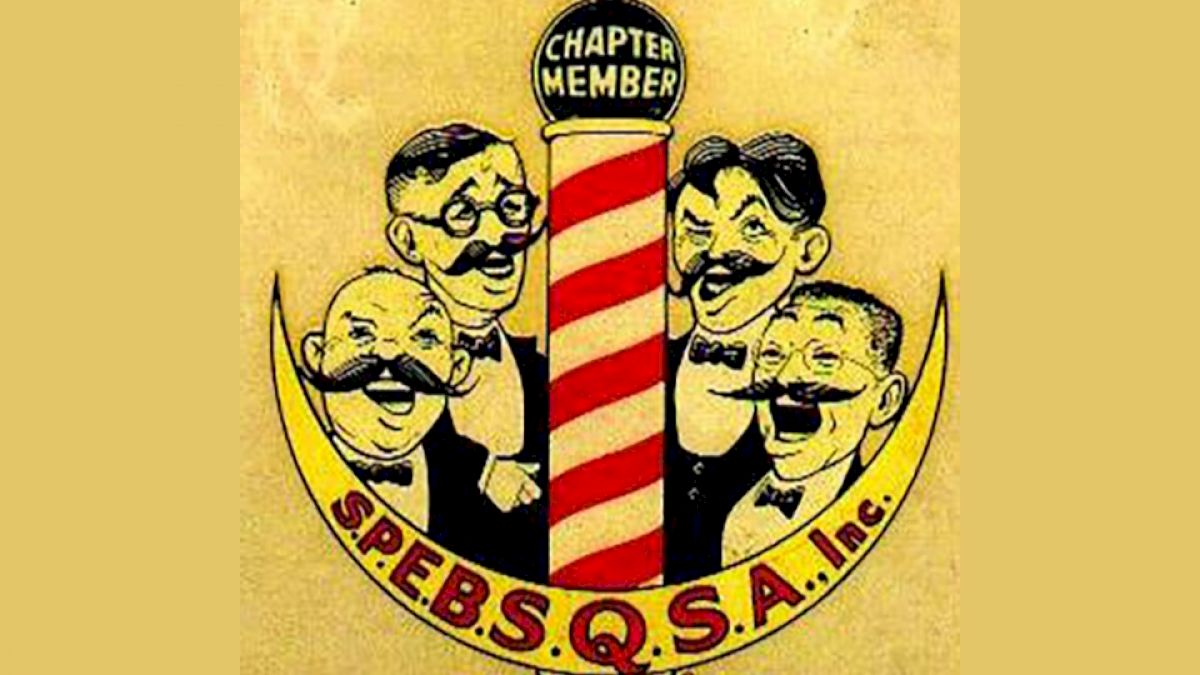
You may know it today as the Barbershop Harmony Society, but its roots go back all the way to 1938 and the not-so-succinctly named Society for The Preservation and Encouragement of Barber Shop Quartet Singing in America (SPEBSQSA).
As the story goes, the length of the organization's name and its incredibly difficult to pronounce acronym were intended to poke fun at President Roosevelet's New Deal "alphabet agencies." Members simply called it "the Society."
It wasn't until 2004 that they officially changed the name to the Barbershop Harmony Society.
This #FlashbackFriday, we're taking a look back at the first five International Quartet champions.
In 1937, the first-ever Barbershop International Quartet champion group was formed out of a town minstrel show in Bartlesville, Oklahoma.
The following year, O.C. Cash (founder of "The Society") went on to name this group after booking them at the state teacher's convention in Tulsa.
About 20 groups came out for the inaugural contest.
The Flat Four were founded in 1923 out of the Oklahoma City Police Department by the Mayor, O.A. Cargill. They placed fourth in 1939 and moved up to first in 1940.
By the second year of the contest, its group submissions skyrocketed to 200.
Nowadays, once a quartet wins the International Contest, they are ineligible to compete again. This wasn't true in the beginning, so the Bartlesville Barflies returned to contest in 1940, placing second.
At that point, the rules were changed so you couldn't compete again.
But the Barflies got around that by changing their name to the Philips 66 Barflies, coming in third twice.
Since then, the rule has been changed so that no more than two members of a past champion quartet can compete together again.
In preparation for competitions, the Chord Busters usually met four nights a week for three to five hours per night.
That hard work paid off when the Chord Busters took the 1941 championship after two days of eliminations in St. Louis.
Sadly, video from this momentous win doesn't exist but audio does!
Check out the Chord Busters' 1941 winning set here.
Naturally, the next year the Chord Busters were invited to compete again but declined. They said they'd come to the convention in Grand Rapids, MI, but not to compete. They planned to receive recognition as champions and "sing up a storm" in hotel lobbies.
Elastic Four was the first quartet from outside of Oklahoma to win.
They started a run of dominant Chicago-area quartets (which, SPOILER ALERT: the Four Harmonizers continued the next year).
To this day, the BHS's "chapter-at-large" designation (for men who are society members but not members of a chapter) is called "Frank Thorne" in honor of Elastic Four's bass, Frank Thorne, a key figure in the early years of the Society.
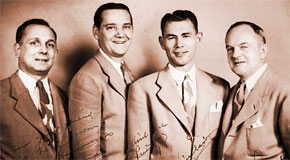
Huck Sinclair, the baritone of the Four Harmonizers, continued to be active in barbershop for over 50 years after his quartet's victory, until he passed away at the age of 92.
The Four Harmonizers claimed that their arrangements were "organically arranged," with all four quartet members participating in "woodshedding" their numbers.
Special thanks to Patrick McAlexander.
--
Don't miss exclusive videos, feature stories, event updates, and more.
Sign up for the FloVoice Newsletter and never miss a beat.
As the story goes, the length of the organization's name and its incredibly difficult to pronounce acronym were intended to poke fun at President Roosevelet's New Deal "alphabet agencies." Members simply called it "the Society."
It wasn't until 2004 that they officially changed the name to the Barbershop Harmony Society.
This #FlashbackFriday, we're taking a look back at the first five International Quartet champions.
1939 - The Bartlesville Barflies
In 1937, the first-ever Barbershop International Quartet champion group was formed out of a town minstrel show in Bartlesville, Oklahoma.
The following year, O.C. Cash (founder of "The Society") went on to name this group after booking them at the state teacher's convention in Tulsa.
About 20 groups came out for the inaugural contest.
1940 - The Flat Foot Four
The Flat Four were founded in 1923 out of the Oklahoma City Police Department by the Mayor, O.A. Cargill. They placed fourth in 1939 and moved up to first in 1940.
By the second year of the contest, its group submissions skyrocketed to 200.
Nowadays, once a quartet wins the International Contest, they are ineligible to compete again. This wasn't true in the beginning, so the Bartlesville Barflies returned to contest in 1940, placing second.
At that point, the rules were changed so you couldn't compete again.
But the Barflies got around that by changing their name to the Philips 66 Barflies, coming in third twice.
Since then, the rule has been changed so that no more than two members of a past champion quartet can compete together again.
1941 - The Chord Busters
In preparation for competitions, the Chord Busters usually met four nights a week for three to five hours per night.
That hard work paid off when the Chord Busters took the 1941 championship after two days of eliminations in St. Louis.
Sadly, video from this momentous win doesn't exist but audio does!
Check out the Chord Busters' 1941 winning set here.
Naturally, the next year the Chord Busters were invited to compete again but declined. They said they'd come to the convention in Grand Rapids, MI, but not to compete. They planned to receive recognition as champions and "sing up a storm" in hotel lobbies.
1942 - The Elastic Four
Elastic Four was the first quartet from outside of Oklahoma to win.
They started a run of dominant Chicago-area quartets (which, SPOILER ALERT: the Four Harmonizers continued the next year).
To this day, the BHS's "chapter-at-large" designation (for men who are society members but not members of a chapter) is called "Frank Thorne" in honor of Elastic Four's bass, Frank Thorne, a key figure in the early years of the Society.
1943 - Four Harmonizers

Huck Sinclair, the baritone of the Four Harmonizers, continued to be active in barbershop for over 50 years after his quartet's victory, until he passed away at the age of 92.
The Four Harmonizers claimed that their arrangements were "organically arranged," with all four quartet members participating in "woodshedding" their numbers.
Special thanks to Patrick McAlexander.
Who's your favorite International champion?
--
FloVoice's best content, delivered directly to your inbox!
Don't miss exclusive videos, feature stories, event updates, and more.
Sign up for the FloVoice Newsletter and never miss a beat.
Related Content
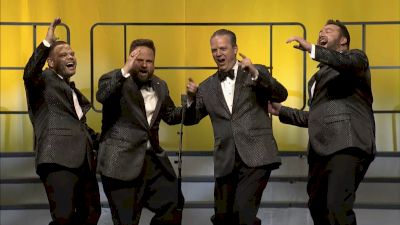 Quorum Tops A Talented Field
Quorum Tops A Talented FieldJul 10, 2022
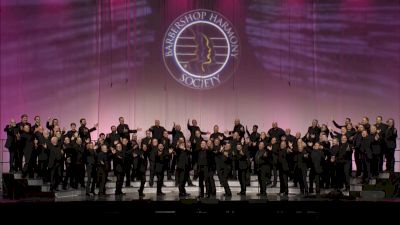 Music City Wins it All
Music City Wins it AllJul 9, 2022
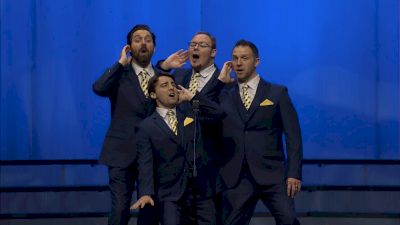 Stage is Set for Quartet Finals
Stage is Set for Quartet FinalsJul 8, 2022
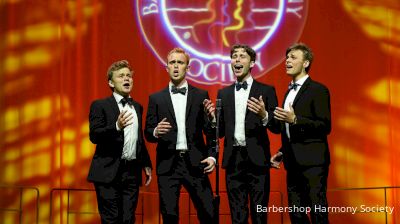 Clementones Squeeze in a Varsity Win
Clementones Squeeze in a Varsity WinJul 7, 2022
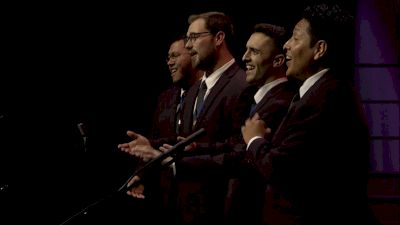 Highlights from NextGen Varsity Contest
Highlights from NextGen Varsity ContestJul 7, 2022
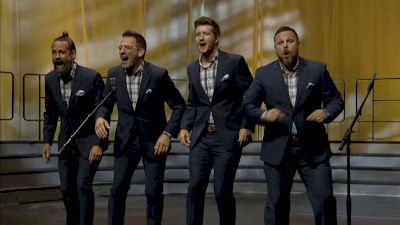 Top 20 Quartets Named at BHS Charlotte
Top 20 Quartets Named at BHS CharlotteJul 6, 2022
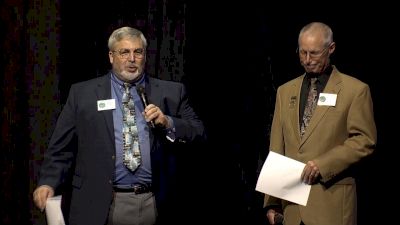 BHS Call Off - Top 20 Quartets
BHS Call Off - Top 20 QuartetsJul 6, 2022
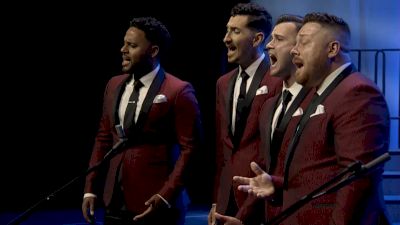 A Historic Kick Off in Charlotte
A Historic Kick Off in CharlotteJul 6, 2022
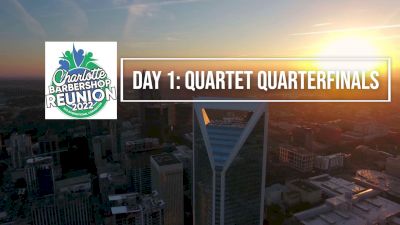 BHS Charlotte - Day 1
BHS Charlotte - Day 1Jul 6, 2022